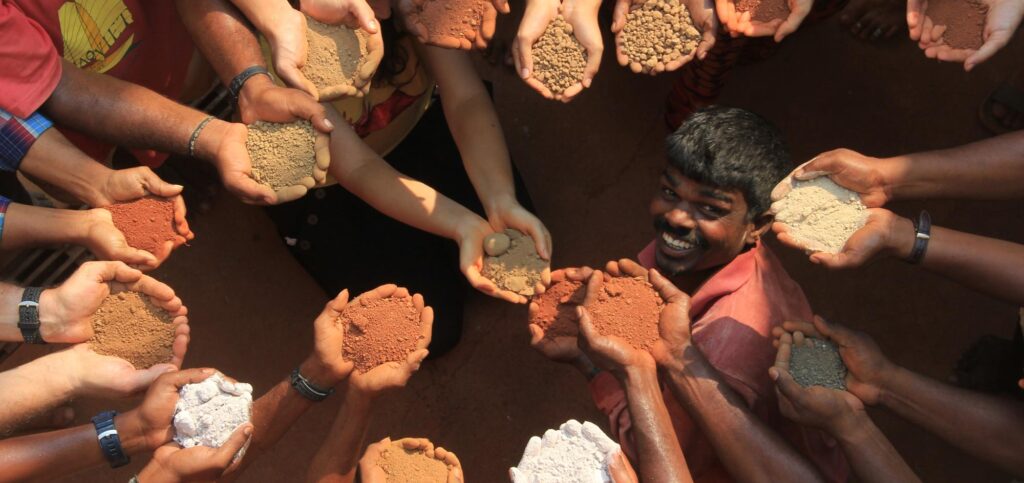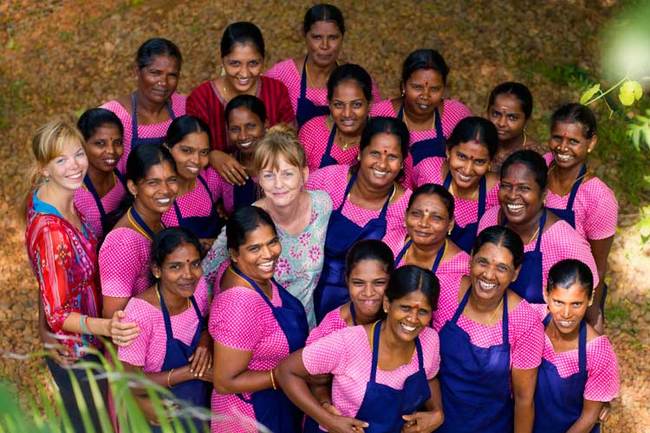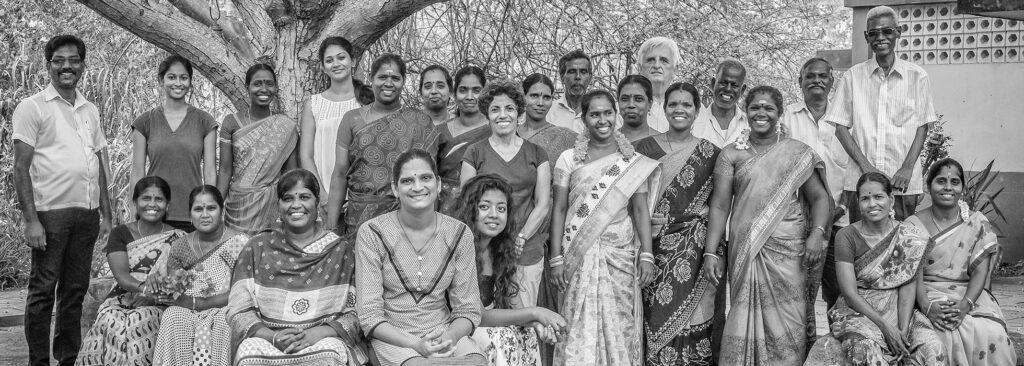
Auroville’s many social enterprises and services employ thousands of people from the local villages, and pay out hundreds of thousands of dollars per month in wages. Many have been employed by Auroville for decades, reflecting an interdependent relationship that has brought prosperity to a once economically depressed region.
The multi-layered challenges of the COVID lockdown period created major limitations for all Auroville projects. During that time, AVI-USA raised funds for Auroville’s communal budget, “City Services”, to support essential community services and basic needs stipends. Meanwhile, many individual projects were struggling to pay wages, cover their rent and other fixed costs, and stay afloat, with limited opportunities to conduct “business as usual”. Beyond their own viability, these projects were essential to the overall economy of Auroville and the region.
When projects couldn’t afford to pay wages to their employees, the impact on the local economy in the villages around Auroville was immediate. Local people rely on their wages from Auroville to cover their basic needs, and Auroville relies on them to function. Over many years of collaboration in building Auroville, these employees have developed the critical skills and expertise needed for the projects to thrive. During the COVID lockdowns, many projects had to cut wages or release longtime employees, thus jeopardizing enduring relationships. When AVI USA began this project, many more were running out of reserves, and facing hard decisions – including whether to remain open at all
The MERA fund was managed by an administrative body formed during the beginning of this period, called Management of Emergency Response in Auroville (MERA), a group specifically made up of members from the Working Committee (WCom), Funds and Assets Management Committee (FAMC), and the Budget Coordination Committee (BCC). This collaborative group processed numerous applications from Auroville projects and granted funding based on need.
In all, over $100k was distributed to Auroville projects by the MERA fund during 2020 and 2021.
Thank You!




